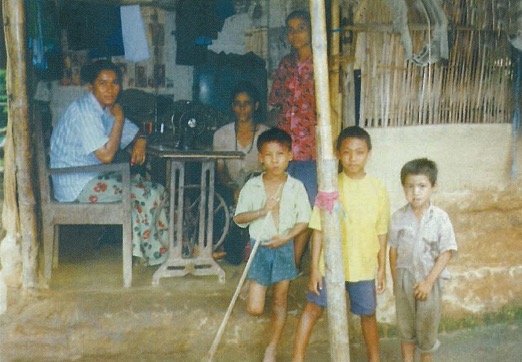By DR. HARI BANSH JHA, NEPAL
Religious and political persecution is alleged to have forced 100,000 Hindus from Bhutan, the tiny 18,147 sq. km. Buddhist kingdom situated in the eastern part of the Himalayas. Today the refugees, most of Nepalese origin but claiming Bhutanese citizenship, are settled in nine camps in southeastern Nepal. Hindu Nepalese have migrated to Bhutan since the mid-nineteenth century, and by the 1980s had come to account for 25% of the nation’s 1.2 million population. Fearing a threat to their ethnic identity, Bhutan took measures to limit the Nepalese presence, one of which was to force the relatively recent arrivals to return to Nepal.
I had read that the conditions at Goldhap camp were abominable, but when I went to the Sanischare camp on July 1, 1996, I found a different story. I saw food, good schools, houses, a well, health facilities and small variety stores. I noticed that the children of the refugees were well fed, though their clothes were unkempt. Overall, the conditions of the Bhutanese refugees seemed better than those of local Nepalese people. One teen-age girl, Sita, said the food provided the deportees was not adequate. Another lamented that the days were difficult for them, and they were not allowed to seek employment. Nearby, men were playing cards. Others sat by idly.
The Nepalese have greeted the newcomers with mixed reactions. Some residents near the camp told Hinduism Today the refugees were living “like pampered children.” Gayatri Devi said, “The refugees have been given so much aid that even many of the Nepalese have benefitted from this. Twenty-five percent of the nonnatives have married locally and acquired Nepalese citizenship. Quite a few are in service and business. They are not going back to Bhutan.”
Others expressed concern for the people. Sunil Chaudhary reported, “Many refugees have been converted to Christianity. Lutheran World Service, noted for conversion, is very active among the Bhutanese.”
Talks between Nepal and Bhutan are at a stalemate. India is suggested as an intermediary–refugees must pass through India to get to Nepal. But internationalizing the problem could lead to major complications between Nepal and China over Tibetan refugees who similarly passed through Nepal on their way to India.
